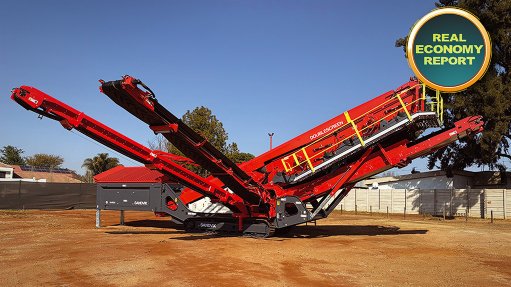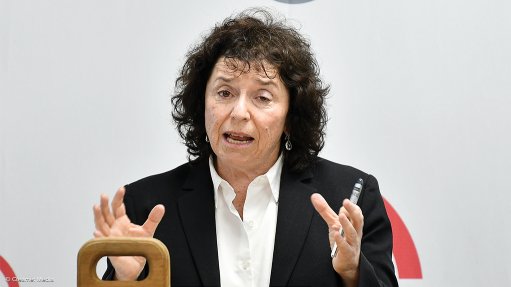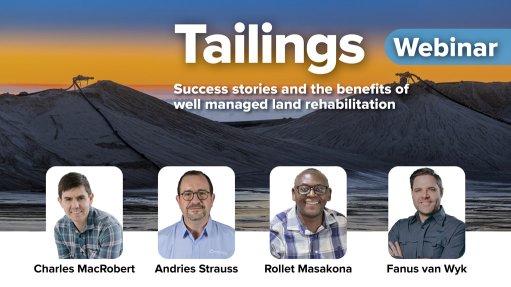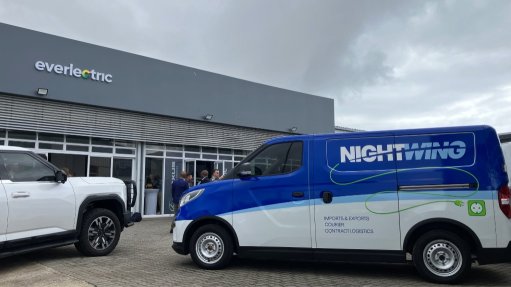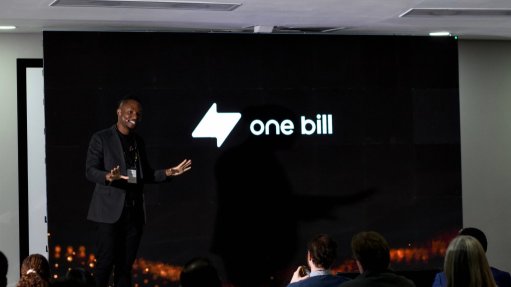Anchor block construction on the Msikaba bridge nears completion

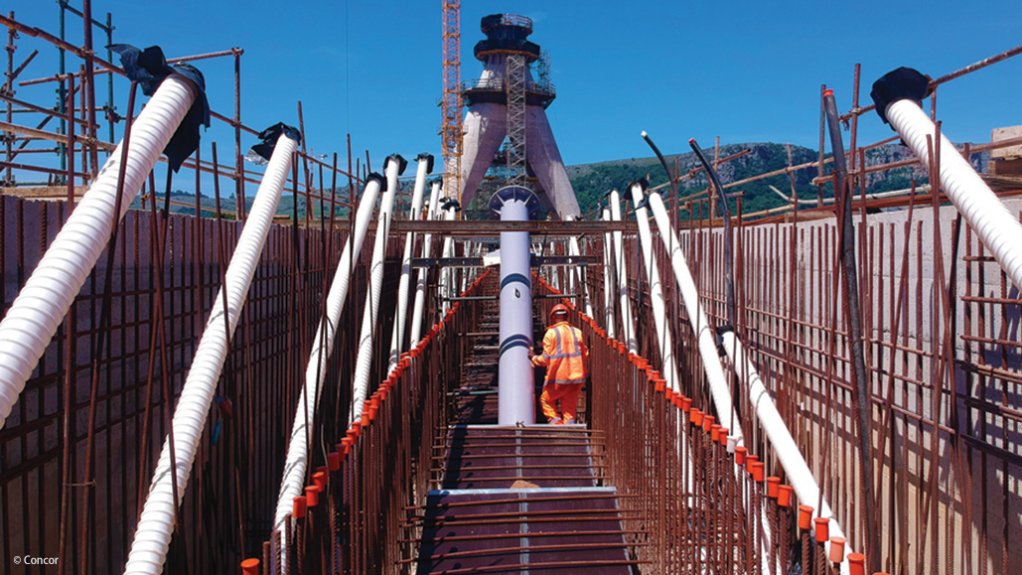
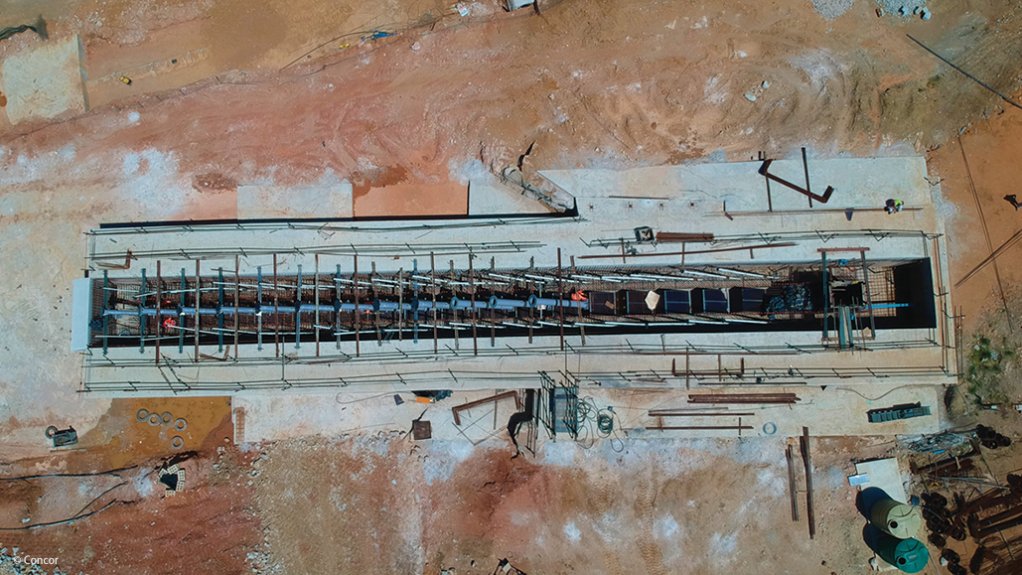
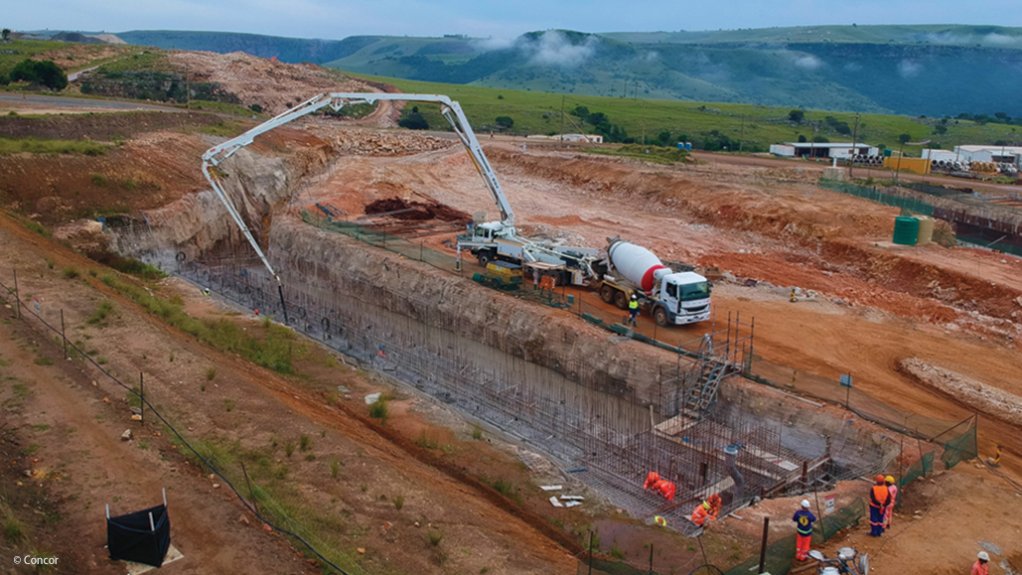
The formwork tubes are installed and cast into the final lift
A bird's eye view of the formwork tube installation
Concrete pour underway at the south-cast anchor block
The Concor-Mota Engil Joint Venture (CME JV) has almost completed the four massive concrete blocks that will anchor the Msikaba bridge in place.
Concor project director Laurence Savage says the blocks represent the engineering on which everything else rests.
“Since they are largely buried structures they tend to be overshadowed by other, more dramatic elements of the bridge, such as the 127-m-high concrete pylons, but they are just as critical, and their construction has been challenging in many aspects.
“The geology has been complex and each anchor block has faced its own unique demands, be it location, geology, the extent of rock fragmentation and water ingress.”
The Msikaba bridge, which forms part of the South African National Roads Agency’s N2 Wild Coast project, will span the 198-m-deep Msikaba River gorge.
The structure is set to cut travel times between the Eastern Cape and KwaZulu-Natal.
It features a main span of 580 m which, on completion, will rank as the longest main-span constructed by the cable-stay method in Africa.
The bridge is being built from the north and south banks of the gorge and comprises two identical halves, each spanning 290 m, which will meet mid-point over the gorge.
Each half is supported by 17 pairs of cables attached to the inverted Y-shaped pylons, one on each side of the gorge.
The pylons are back-stayed into the anchor blocks, two on either side of the gorge, by 34 pairs of cables – 17 for each half – positioned 130 m behind each pylon.
Each anchor block has a length of 49 m, a width of 10 m at the base (narrowing to 4 m on the spine of the structure), a depth of 17.2 m, and a mass of 21 500 t.
Their construction has been underway almost since work on the Msikaba project began in earnest in late 2019.
They will reach completion shortly, just weeks before the deck is launched over the gorge.
Precise blasting techniques were required for the bulk excavations for the four blocks, with the blasted rock material cleared out using 30 t excavators and articulated dump trucks supplied by local subcontractors.
Extensive lateral support was installed in the side walls.
Construction of the blocks has involved the placing of 4 100 m3 of structural concrete and 2 650 m3 of mass concrete, as well as the fixing of 200 t of reinforcement in each anchor block.
Each block was cast incrementally with 11 lifts, varying from 1.25 m to 1.75 m per lift.
Savage says challenges during construction included working in deep excavations and confined spaces, sometimes with heavy machines, and working in and over reinforcing, with much of the work taking place at night.
Comments
Press Office
Announcements
What's On
Subscribe to improve your user experience...
Option 1 (equivalent of R125 a month):
Receive a weekly copy of Creamer Media's Engineering News & Mining Weekly magazine
(print copy for those in South Africa and e-magazine for those outside of South Africa)
Receive daily email newsletters
Access to full search results
Access archive of magazine back copies
Access to Projects in Progress
Access to ONE Research Report of your choice in PDF format
Option 2 (equivalent of R375 a month):
All benefits from Option 1
PLUS
Access to Creamer Media's Research Channel Africa for ALL Research Reports, in PDF format, on various industrial and mining sectors
including Electricity; Water; Energy Transition; Hydrogen; Roads, Rail and Ports; Coal; Gold; Platinum; Battery Metals; etc.
Already a subscriber?
Forgotten your password?
Receive weekly copy of Creamer Media's Engineering News & Mining Weekly magazine (print copy for those in South Africa and e-magazine for those outside of South Africa)
➕
Recieve daily email newsletters
➕
Access to full search results
➕
Access archive of magazine back copies
➕
Access to Projects in Progress
➕
Access to ONE Research Report of your choice in PDF format
RESEARCH CHANNEL AFRICA
R4500 (equivalent of R375 a month)
SUBSCRIBEAll benefits from Option 1
➕
Access to Creamer Media's Research Channel Africa for ALL Research Reports on various industrial and mining sectors, in PDF format, including on:
Electricity
➕
Water
➕
Energy Transition
➕
Hydrogen
➕
Roads, Rail and Ports
➕
Coal
➕
Gold
➕
Platinum
➕
Battery Metals
➕
etc.
Receive all benefits from Option 1 or Option 2 delivered to numerous people at your company
➕
Multiple User names and Passwords for simultaneous log-ins
➕
Intranet integration access to all in your organisation











